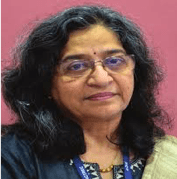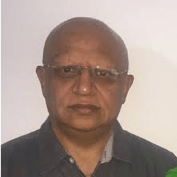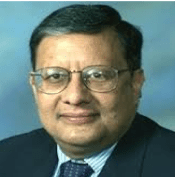Day 4 of the Immuno-Jaipur included talks from renowned Professors Shubhada Chiplunka, Sunil Arora, Hannes Stockinger, Abul Abbas and Oliver Boyer. In think article we shall higlights information relayed by Profs Chuplunka, Arora and Abbas.
 Prof. Shubhada Chiplunkar, ACTREC-Tata Memorial Centre, addressed the audience on the topic ‘Immune evasion strategies of the tumor’. The crosstalk of tumor infiltrating immune system and tumor cells resulting into the diminished immunosurveillance was beautifully uncovered during the lecture. The interaction of immune system and cancer was explained into three phases – elimination, equiliibrium and escape. She covered various strategies of tumor immune evasion such as MHC downregulation, recruitment of immunosuppressor cells such as Tregs and MDSCs to the tumor bed, scarecity of nutrients in the tumor environment, increased hypoxia due to high metabolic rate of tumor cells, enzymatic catabolism of essential amino acids such as tryptophan to kynerunine by Indoleamine 2,3-dioxygenase limiting the T cells function in the tumor, etc. She also briefed the current clinical trials targeting the immune checkpoints, metabolic pathways in combination with conventional chemo & radiotherapy.
Prof. Shubhada Chiplunkar, ACTREC-Tata Memorial Centre, addressed the audience on the topic ‘Immune evasion strategies of the tumor’. The crosstalk of tumor infiltrating immune system and tumor cells resulting into the diminished immunosurveillance was beautifully uncovered during the lecture. The interaction of immune system and cancer was explained into three phases – elimination, equiliibrium and escape. She covered various strategies of tumor immune evasion such as MHC downregulation, recruitment of immunosuppressor cells such as Tregs and MDSCs to the tumor bed, scarecity of nutrients in the tumor environment, increased hypoxia due to high metabolic rate of tumor cells, enzymatic catabolism of essential amino acids such as tryptophan to kynerunine by Indoleamine 2,3-dioxygenase limiting the T cells function in the tumor, etc. She also briefed the current clinical trials targeting the immune checkpoints, metabolic pathways in combination with conventional chemo & radiotherapy.
 Prof. Sunil Arora, PGIMER, Chandigarh, gave the insights on the tumor microenvironment and cancer stem cells. The tumor niche determines the metastatic potential of cancer cells as described by ‘seed and soil hypothesis’ proposed by Steven Paget. The spread of tumor cells is governed by interaction and cooperation between the cancer cells (seed) and the host organ (soil). Dr Arora explained that the cancer stem cells contribute significantly in the process of cancer metastasis and relapse by giving rise to new tumors. The CSCs are highly proliferative, have self renewing capacity and highly resistant towards immunosurveillance. He also explained the flowcytoetry based evidences of CSC in the tumor. In the later part he highlighted the consept of field cancerization that it is a biological process in which large areas of cells at a tissue surface or within an organ are affected by a carcinogenic alteration(s). The process arises from exposure to an injurious environment, often over a lengthy period.
Prof. Sunil Arora, PGIMER, Chandigarh, gave the insights on the tumor microenvironment and cancer stem cells. The tumor niche determines the metastatic potential of cancer cells as described by ‘seed and soil hypothesis’ proposed by Steven Paget. The spread of tumor cells is governed by interaction and cooperation between the cancer cells (seed) and the host organ (soil). Dr Arora explained that the cancer stem cells contribute significantly in the process of cancer metastasis and relapse by giving rise to new tumors. The CSCs are highly proliferative, have self renewing capacity and highly resistant towards immunosurveillance. He also explained the flowcytoetry based evidences of CSC in the tumor. In the later part he highlighted the consept of field cancerization that it is a biological process in which large areas of cells at a tissue surface or within an organ are affected by a carcinogenic alteration(s). The process arises from exposure to an injurious environment, often over a lengthy period.
Prof. Abul Abbas, UCSF, USA delivered his fifth lecture on recent progress in cancer immunotharapy-checpoint blockade. He explained in his decorative words, the mechanism of checkpoint blockade therapy currently offered to the cancer patients – Anti CTLA4 and Anti PD-1/PD-L1 therapy. CTLA4 was evolved to regulate the T cells specific for self antigens, thus the use of anti-CTLA4 therapy is always associated with hightened toxicities as the self reactive cells are not any more under control in the patients undergoing anti-CTLA4 therapy. Further he described that since the cancer vaccines are designed to activate host immune system against cancer cells, the tumor cells, however, are trained to evade the immune response which result into the failure of clinical trials using cancer vaccines. Thus the in depth analysis of immune infiltrate to the tumor would be helpful the the design of immunotherapy. High mutational burden of a cancer can be a good biomarker for immunotherapy as it associates with the checkpoint blockade response by the patients.
Article by Rushikesh Patil, Dimpu Gogoi and Mr. Naythan D’Cunha












